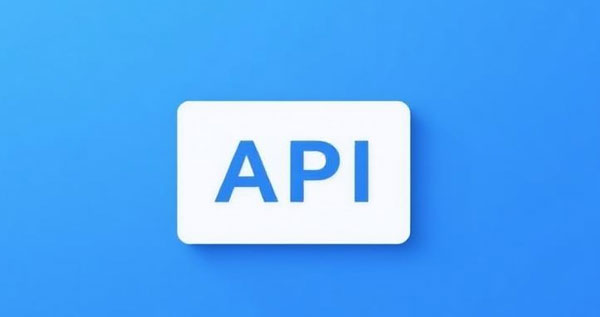Python Web Scraping and Proxies: Basic Principles and Practical Guide
1. Introduction
In the data-driven era, web scraping (Web Crawler) has become an essential tool for acquiring data. However, many websites impose restrictions on scrapers, such as IP bans and access frequency limits. Therefore, the application of proxy technology in web scraping is particularly important.
This article will introduce the basic principles of Python web scraping, thoroughly explain the role and usage of proxies, and demonstrate how to build an efficient web scraping system through practical case studies. We will use LuckData proxy IPs as an example to show how to integrate proxies in web scraping to enhance data acquisition capabilities.
2. Basic Concepts of Web Scraping
2.1 What is a Web Scraper?
A web scraper is an automated program that can simulate a browser to access web pages and extract the required data according to certain rules.
2.2 Basic Workflow of Web Scraping
Send Requests: Use tools like
requests,Scrapy, etc., to send HTTP requests to the target website.Parse Data: Use
BeautifulSoup,lxml, orreto extract key information from the web page.Store Data: Save the collected data into a database or file for later analysis.
2.3 Common Python Web Scraping Tools
requests: Used to send HTTP requests and get webpage content.BeautifulSoup: Used to parse HTML structure and extract data.Scrapy: A powerful web scraping framework that supports asynchronous crawling, proxies, data storage, etc.
3. The Role and Principles of Proxies
3.1 What is a Proxy?
A proxy is an intermediary server that acts on behalf of the client to send requests to the target server, thereby hiding the real IP address.
Types of Proxies:
Forward Proxy: A user accesses the target website through a proxy, such as a VPN.
Reverse Proxy: A server receives user requests through a proxy, such as a CDN.
3.2 The Role of Proxies in Web Scraping
Bypass IP Restrictions: Some websites limit the number of requests from a single IP. Using proxies helps to avoid IP bans.
Increase Anonymity: Proxies can hide the real IP address, reducing the risk of being detected as a scraper.
Speed Up Access: High-quality proxies can provide faster access speeds.
3.3 Introduction to LuckData Proxy IP
Among many proxy service providers, LuckData proxy IP offers the following advantages:
Multiple Proxy Types: Including Data Center Proxies, Residential Proxies, and Dynamic Residential Proxies to meet different web scraping needs.
Over 120 Million Residential Proxy IPs worldwide, with fast rotation and geolocation support, suitable for high-frequency scraping.
Supports HTTP/HTTPS Protocols, adaptable to various network environments and security needs.
Unlimited Concurrent Sessions: Supports running multiple proxies simultaneously, enhancing the concurrency of web scraping.
Cost-effective: Provides different pricing plans for Data Center Proxies, Residential Proxies, and Dynamic Residential Proxies at reasonable prices.
LuckData proxies can be applied to brand protection, SEO monitoring, market research, web testing, stock market analysis, social media, e-commerce, ad verification, and many other fields. It is a powerful tool for businesses and developers.
4. How to Use Proxies in Python Web Scraping
4.1 Manually Setting Up Proxies
(1) Using requests to Set Up LuckData Proxy
import requestsproxyip = "http://Account:Password@ahk.luckdata.io:Port"
url = "https://api.ip.cc"
proxies = {
'http': proxyip,
'https': proxyip,
}
response = requests.get(url, proxies=proxies)
print(response.text)
LuckData provides efficient and stable proxy IPs, which can be used to bypass anti-scraping mechanisms and increase scraping success rates.
4.2 Using a Proxy Pool
Proxy Pool Function: Automatically switches IPs to avoid interruption caused by a single proxy failure.
Advantages of LuckData Proxy Pool:
Over 120 Million IP Resources, covering over 200 countries and regions, with automatic rotation to bypass geographical restrictions.
0.6 ms Response Time and 99.99% Network Uptime to ensure stability.
Flexible Pricing Plans, allowing users to choose according to their needs, offering great value for money.
(1) Simple Implementation of a Python Proxy Pool
import randomproxies = [
"http://Account:Password@ahk.luckdata.io:Port1",
"http://Account:Password@ahk.luckdata.io:Port2",
"http://Account:Password@ahk.luckdata.io:Port3"
]
def get_random_proxy():
return random.choice(proxies)
proxy = {"http": get_random_proxy()}
response = requests.get("http://example.com", proxies=proxy)
print(response.text)
4.3 Verifying the Availability of LuckData Proxy
import requestsdef check_proxy(proxy):
try:
response = requests.get("https://api.ip.cc", proxies={"https": proxy}, timeout=3)
return response.status_code == 200
except:
return False
print(check_proxy("http://Account:Password@ahk.luckdata.io:Port"))
5. Application of LuckData Proxy in Anti-Scraping Measures
5.1 Anti-Scraping Strategies
IP Ban → LuckData Infinite Proxy Rotation can avoid IP bans
User-Agent Detection → LuckData Proxy combined with Random User-Agent can simulate real users
Access Frequency Limitation → LuckData Proxy supports high concurrency, improving scraping efficiency
JavaScript Dynamic Loading → LuckData Proxy can be combined with Selenium
5.2 Bypassing Anti-Scraping Mechanisms with LuckData Proxy
from selenium import webdriveroptions = webdriver.ChromeOptions()
options.add_argument("--proxy-server=http://Account:Password@ahk.luckdata.io:Port")
options.add_argument("--headless")
driver = webdriver.Chrome(options=options)
driver.get("http://example.com")
print(driver.page_source)
driver.quit()
6. Practical Example: Using LuckData Proxy to Scrape Web Data
import requestsproxy = {"http": "http://Account:Password@ahk.luckdata.io:Port"}
headers = {"User-Agent": "Mozilla/5.0"}
response = requests.get("http://example.com", headers=headers, proxies=proxy)
print(response.text)
7. Conclusion
This article introduced the basic knowledge of Python web scraping, the role and usage of proxies, and demonstrated how to improve web scraping performance using LuckData proxy.
LuckData proxies offer over 120 million residential IPs, low latency and high stability, unlimited concurrency, and flexible pricing plans, making them suitable for a wide range of applications such as brand protection, SEO monitoring, market research, and web testing.




